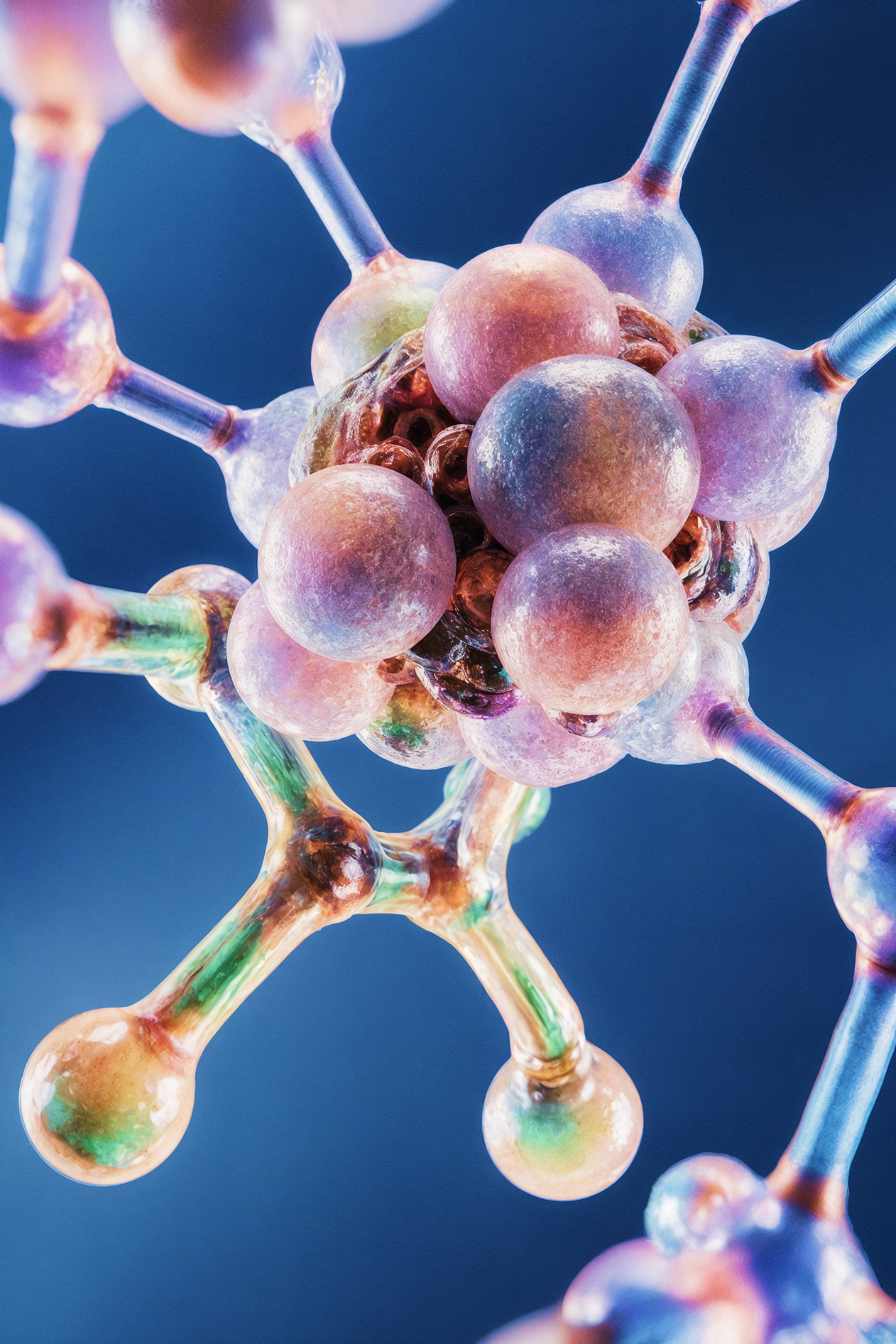Annual Report 2024
Order from Chaos: Denes Hnisz Turns Disordered Proteins into New Treatment Targets
Denes Hnisz, PhD
For decades, intrinsically disordered proteins in human cells have been the “problem child” of molecular biology, says Denes Hnisz, PhD. Since they don’t fold into stable, predictable structures, these proteins have proven nearly impossible to study using biochemical tools like X-ray crystallography or to target with small-molecule therapeutics.
The challenge has been particularly frustrating for cancer researchers, since many of the critical oncoproteins that drive cancer growth fall within this disordered realm. But thanks to a novel, multidisciplinary approach — and support from The Mark Foundation — these so-called “undruggable” proteins could now become viable targets for new cancer therapeutics.
Untangling the Nuances of Condensates
Hnisz, a group leader at the Max Planck Institute for Molecular Genetics in Berlin, is a leading expert on biomolecular condensates – tiny, protein-rich droplets that form within human cells. His lab investigates how condensates form, their functions, and how genetic diseases such as cancer alter their composition and behavior.
Several years ago, Hnisz’s knowledge of oncoprotein condensates led him to an interesting hypothesis: that the androgen receptor's ability to form condensates is key to its function in prostate cancer. But as he started to pursue funding to explore the theory, which he notes was controversial at the time, Hnisz ran into a familiar hurdle.
"This type of work is tough to get funded by agencies that primarily fund basic biology, but it’s also too early-stage to be sponsored by industry," he says. "The Mark Foundation really filled in that major gap."
In 2022, Hnisz received an ASPIRE Award to explore the question through a collaboration with leading biophysicist Xavier Salvatella, PhD, at IRB Barcelona. While molecular biology and biophysics are typically treated as separate disciplines, Hnisz noted, The Mark Foundation’s focus on multidisciplinary approaches allowed him to augment his own skill set with Salvatella’s deep knowledge of protein structure and behavior.
Unlocking a New Path Forward
The initial ASPIRE grant served as a critical proof-of-concept. Hnisz and Salvatella focused on the understudied N-terminal domain of the androgen receptor, a disordered region known to be essential for AR's oncogenic activity. Their work revealed that a high abundance of specific amino acids within this disordered part make the AR "sticky," leading to condensate formation. Crucially, they discovered that when the AR is forced into condensates, parts of its disordered sequence assume a transiently stable structure, creating a binding pocket that could be targeted using small molecules.
This discovery laid the groundwork for a new strategy to interfere with AR function, offering a much-needed alternative to existing therapies that target the AR's stable, ligand-binding domain. While current FDA-approved drugs are effective, resistance often emerges, leaving patients with limited treatment options. Targeting the N-terminal domain's condensate behavior, Hnisz and Salvatella hope, could offer those patients a meaningful path forward. The findings also led Hnisz and Salvatella to co-found Nuage Therapeutics, a company dedicated to leveraging molecular condensates to unlock the druggability of intrinsically disordered proteins in diverse cancer types. The startup, based in Spain, is currently validating targets for several different malignancies.
The findings also led Hnisz and Salvatella to co-found Nuage Therapeutics, a company dedicated to leveraging molecular condensates to unlock the druggability of intrinsically disordered proteins in diverse cancer types. The startup, based in Spain, is currently validating targets for several different malignancies.
Expanding the Impact: A Growing Partnership

With the successful proof-of-concept in place, Hnisz received an ASPIRE II Award in 2024 to expand the work. He is now investigating the molecular mechanisms of condensation behavior in five other hormone receptors, all of which are major oncoproteins. The goal is to determine if the same concept applies to a broader range of human oncoproteins, potentially extending the therapeutic applicability beyond prostate cancer to conditions like breast cancer and other hormone-linked cancers.
"The Mark Foundation is incredibly excited by the potential of Dr. Hnisz's work," says Ryan Schoenfeld, PhD, CEO of The Mark Foundation for Cancer Research. "His approach to targeting intrinsically disordered proteins could open up entirely new therapeutic avenues for challenging cancers. It’s precisely the kind of bold, high-impact science we aim to accelerate."




